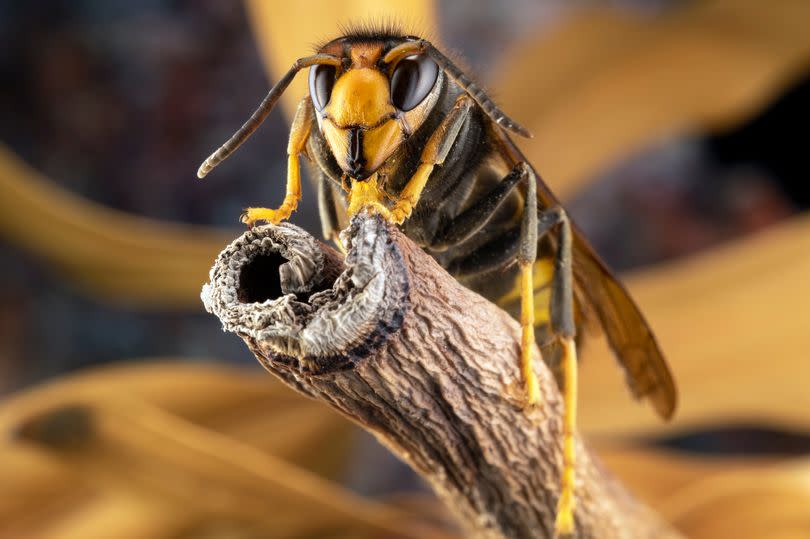Killer Asian hornets on their way to UK with 3,800 per cent increase in numbers

The UK is on high alert for an invasion of killer Asian hornets with numbers expected to surge by 3,000 per cent. Last year, Britain experienced a staggering 3,800 per cent increase in sightings of the deadly insects.
These hornets pose a significant threat as they can obliterate entire beehives within hours and their swarms have the potential to be fatal to humans and other large mammals due to their venomous sting. In 2022, there were only two reported encounters with these predators, but this figure skyrocketed to 78 in 2023.
Already this year, the British Beekeepers Association has reported four sightings of Asian hornets, which is unusual given that it's months before their typical season. Ian Campbell from the BBKA expressed his concerns to The Sun on Sunday: "They're rife in Europe now, causing complete devastation, and that's what we're facing this year. We could be looking at thousands, maybe tens of thousands, by the end of the year."
A single Asian hornet has the capacity to kill up to 50 honey bees in one go. These ruthless insects decapitate their victims and extract their insides to nourish their larvae.
Kent beekeeper Simon Spratley faced a catastrophic loss last year when Asian hornets destroyed 15 of his 17 hives, reports the Mirror. He voiced his concern, stating: "In my 13 years as a beekeeper, I've never been more frightened. The average nest of Asian hornets produces up to 800 queens a year, around 90 per cent of which die with a typical winter. But because we've only had one night below -5C this winter, up to 90 per cent will survive."
"If you go within 50 metres, they become hyper aggressive and will come out as a swarm of thousands to ward you off. They have 6mm stingers which can strike repeatedly, and once you've been stung it releases a pheromone that drives them all crazy to kill. You won't be able to outrun them."
In response to the threat, the BBKA has recently launched an app, encouraging the public to report any sightings. Available for both iPhone and Android devices, the Asian Hornet Watch app is set to be a crucial tool for restraining hornet numbers.
Speaking on the initiative, Ian explained: "We're relying on the public to help control numbers as best we can. It's very important to distinguish between the smaller Asian hornet and the larger, native European hornet."
Identifying features to look out for are differences in size and pattern. While Asian hornets possess dark abdomens with thin orange stripes, their European equivalents have yellow abdomens.
The Asian hornet measures around 25mm in length, while the European species are slightly larger at 30-35mm.
Earlier this year, the Department for Environment Food and Rural Affairs confirmed the capture of a hornet on March 11, after it was spotted in Ash, Kent. This sighting occurred considerably earlier than last year's first sighting, which didn't take place until April 11 - a month later into the year.
Following expert analysis in a lab, it was confirmed that the captured specimen was indeed an Asian hornet. Beekeepers are raising the alarm over the possibility that numerous nests of an invasive species have been overlooked, potentially allowing fertile queen hornets to escape and establish new colonies in the UK. Diane Drinkwater, chair of the British Beekeepers' Association (BBKA), expressed her concerns: "I suspect this is a winter queen that was born here. That has not been confirmed, but that would be logical."
"Their life cycle is not advanced enough for them to have developed workers by this point. So I suspect it has not migrated from abroad, but we may have missed a nest somewhere. We have seen a lot of rain so a lot of places where they hibernate might have been flooded. We always hope to see a lot of them die off."

 Yahoo News
Yahoo News 
